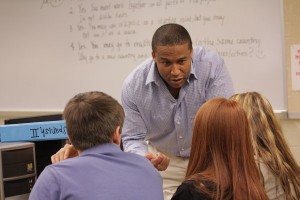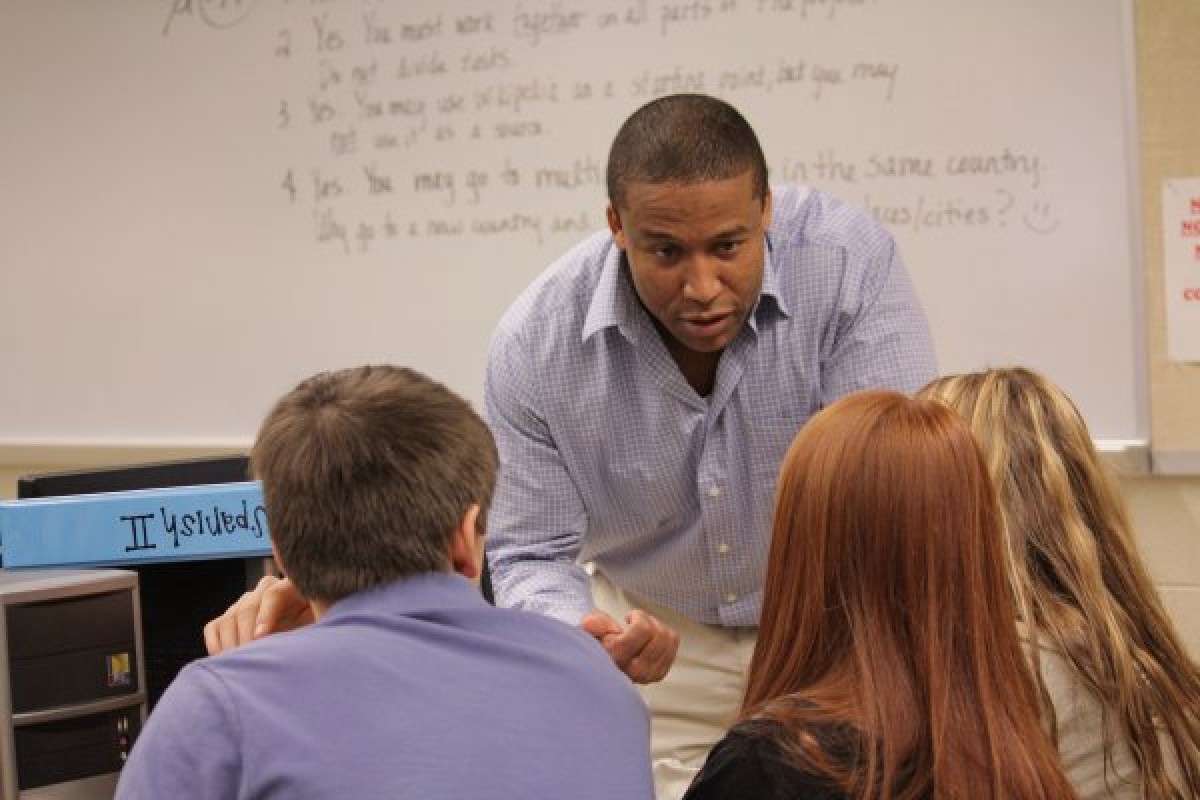Santiago Correa: striving to make difference

For some international students, attending college is an opportunity that would be otherwise impossible in their native countries. Santiago Correa is one such student.
An education major with a Spanish minor, Correa is utilizing his senior thesis to inform others about the discrimination against black communities in his home country of Ecuador.
“A lot of people don’t know what the situation, the reality for black communities is there,” Correa said.
In his country, black individuals lack equal education and equal job opportunities.
“We don’t teach them the black history of Ecuador,” he said.
There are so many laws that work against the black communities in Ecuador that if the people in these communities manage to get a job outside of playing soccer, they are unable to hold high positions, such as ranking officers in the military.
“Why? That is the question. Why? I don’t know why,” Correa said.
He went on to say that the discrimination in Ecuador is so bad that, for example, when 100 students in a black community graduate from high school, maybe 20 will go on to college. Out of those 20 students, maybe two will graduate, and one will find a job.
“That’s so sad,” he said of this example.
Correa said that what he is the most thankful for is an opportunity to go to college. He believes that his opportunity to attain higher learning is the best thing that has happened to him.
“This is an opportunity that you don’t see in my country,” he said, “It doesn’t matter how old you are. It doesn’t matter what color you are. It doesn’t matter what religion you are.”
He is determined to show others the level of iniquity he experienced in Ecuador.
“The more mature I became, the more I looked at that and said, ‘That’s not right,’” he said.
Correa views his desire to educate others about this injustice and inspire change as more of a calling than a passion. He asserted that it is “a necessity” that he does this.
“It affects the black community, and I am part of the black community,” he said.
He sees his bringing these issues to life as being crucial. His desire to show others the type of great injustice which many people face every day is sincere and instrumental to his wish to correct what he can only describe as violations of human rights.
His aim is to convey to the many what should be self-evident: We are humans.” “If only one voice is talking, they aren’t going to listen,” Correa said, “but if 10 voices are talking, then they will listen.”
He aspires to inspire others to take up this cause with him to end these injustices.
Correa now finds himself pursuing a career in education, a decision he says which is not about the subject matter he will teach or the money he will make, but the children he will empower.
“It’s not about the money,” he said. “If I can make a difference in one kid, that will make me rich. If I can help one kid reach his goal, then that will make me rich.”
He says his wish to teach is his passion.
On teaching his native language and coaching soccer, he said “Why would I not teach something that I know to someone else?”
Correa is also pursuing American citizenship.
“I’ve been in the process for almost nine years to get my citizenship,” he said.
Correa has recently passed his citizenship exam. Now he excitedly waits for his naturalization ceremony, which will be on April 11, 2012.

